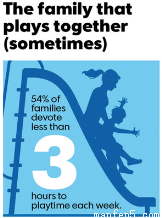题目内容
根据短文内容,从短文后的选项中选出能填入空白处的最佳选项。选项中有两项为多余选项。
Mountain biking is a great way to explore the outdoors, stay in shape, or just have fun. 1._________ Even though it’s dangerous, if you ride with caution, it can be enjoyed by the entire family.
Mountain biking can best be characterized into three different styles --- downhill, free riding, and cross country. Even though the different styles are similar in some ways, they still require different skills. 2.___________
You can find groups that have mountain bike rides and competitions. You can look on the Internet or even in a local paper and see exactly what’s available in your area. 3.__________ Like all other sports, it takes time and practice. Those just beginning will have to get past the bumps and bruises from falling off the bike.
The bike you select is more of a personal choice, and a big determining factor on the type of riding you will be doing. Bikes come in all styles, shapes, and prices, which will make selecting one for yourself very difficult indeed. 4.__________ A great mountain biker will become one with his or her own bike. When buying, make sure you check for comfort, how it fits, even how it is geared.
5.__________ Anytime you are riding, you should wear a helmet, along with knee and elbow pads. If you are following a group or riding in the woods you should strongly consider a pair of goggles as well. Safety should be your top priority and never taken lightly anytime you are mountain biking.
A. To buy a bike for mountain biking, you should mainly consider how much the bike costs you.
B. It takes practice to succeed for a great mountain biker.
C. Racing down the side of a mountain is a lot of fun indeed, although it can also be quite dangerous.
D. The style that you pick will determine the type of bike you get.
E. You may be able to find groups for the more advanced riders as well as beginners.
F. Mountain bike riding on unpaved roads can be very dangerous, as mentioned earlier.
G. Before you buy a bike, always ask to try it out first.
 阅读快车系列答案
阅读快车系列答案

